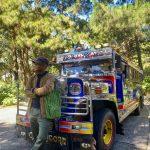The Joyous Spectacle of Cambodia’s Water Festival
In the heart of Cambodia, the annual Water Festival, known locally as “Bon Om Touk,” emerges as a celebration deeply entrenched in the nation’s cultural fabric. This vibrant and grand event is a jubilant commemoration of the reversing flow of the Tonle Sap River, an essential lifeline for the country’s agriculture and livelihoods. Each year, usually in November, Cambodians from across the country gather in Phnom Penh to revel in this multi-day extravaganza.

A number of things that have happened in recent years have caused Cambodia to repeatedly delay this event. A stampede in 2010 was one of the unfortunate occurrences that forced the 2011 preparations to take a back seat. The cramped bridge that linked Koh Pich Island to Phnom Penh was the site of a stampede that killed over 300 people in 2010. Afterwards, the event was delayed for various reasons, most notably because of the global COVID pandemic.
Why the Water Festival?
The origins of the Water Festival trace back centuries, commemorating the might of the ancient Khmer navy and the strategic importance of the Tonle Sap River. It also marks the end of the rainy season, signaling the beginning of the fishing season as the Tonle Sap River’s current shifts. This significant event draws millions of locals and tourists alike, captivated by the festival’s blend of tradition, spirituality, and merriment.
At the heart of the festival is the mesmerizing boat race, where teams compete fiercely in long, slender boats, meticulously adorned and decorated. Each vessel, manned by rowers, glides gracefully through the river’s waters in a display of agility, skill, and teamwork. The rhythmic beat of drums and the cheers from spectators create an electrifying atmosphere along the riverbanks.
Beyond the boat races, the festival encompasses a variety of cultural and religious ceremonies. The Royal Palace becomes a focal point for Buddhist monks and devotees to pay homage, offer prayers, and participate in colorful processions. Locals engage in traditional performances, including the graceful Apsara dance, showcasing the country’s rich artistic heritage.
One of the festival’s most enchanting features is the illuminated flotilla parade, where beautifully decorated boats adorned with colorful lights gracefully glide along the river at nightfall. The shimmering reflections on the water create a breathtaking spectacle that mesmerizes spectators.
Throughout the festival, the air is filled with an infectious spirit of joy and camaraderie. Families reunite, friends come together, and strangers bond over shared experiences, creating a sense of unity and community spirit that transcends boundaries.
However, the Water Festival is not merely a time of revelry; it holds deep cultural significance for the Cambodian people. It serves as a poignant reminder of the resilience and strength ingrained in the nation’s spirit, having persevered through a tumultuous history. In recent decades, the festival has regained its vibrancy after a hiatus due to the Khmer Rouge era’s tragic events, further solidifying its importance in Cambodia’s cultural revival.
For visitors, experiencing the Cambodian Water Festival is an immersion into a tapestry of traditions, spirituality, and exuberance. It’s an opportunity to witness the country’s cultural heritage firsthand and partake in the jubilant festivities that signify hope, unity, and the enduring spirit of Cambodia.
As night falls on the final day of celebrations, the echoes of the festival slowly fade away, leaving behind cherished memories and a renewed sense of cultural pride. The Cambodian Water Festival stands as a testament to the country’s rich heritage, its people’s resilience, and the enduring traditions that bind them together in jubilation and harmony.

 Previous Post
Previous Post